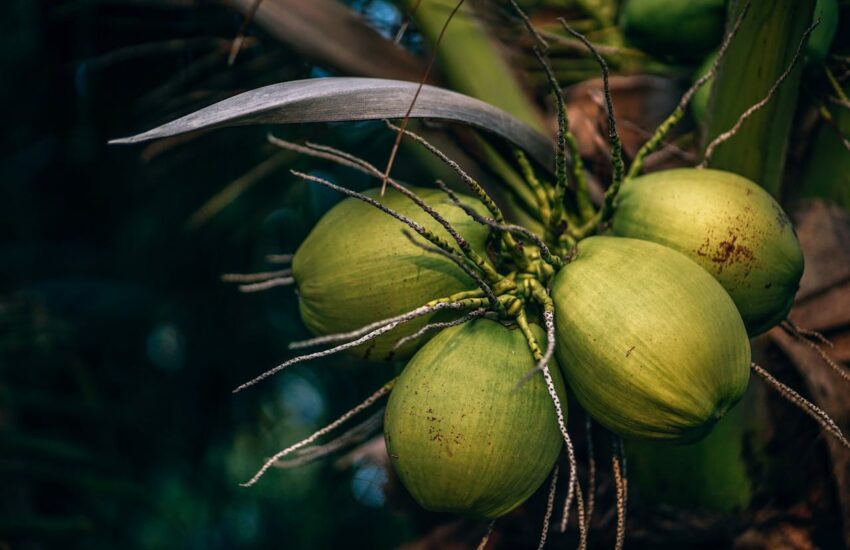The Most Important Antioxidant You’ve Never Heard Of
Not many people knew what antioxidants were until about a decade ago.
Part of the reason for this is the Internet wasn’t quite as developed as it is now. The distribution of knowledge wasn’t as seamless, and people weren’t able to read blogs and emails regaling the power of antioxidants as they do today.
Researchers were also just beginning to understand how useful antioxidants were.
Don’t misunderstand me – we’ve known about antioxidants for well over five decades now. But what we know about them now has only really been accelerated in the past 10-15 years.
I’d guess that nearly 80-90% of what I write about is related to antioxidant power.
In fact, I’m so obsessed with antioxidants I write the word “antioxidant”on my windows at home in dry erase marker, I named my dog Antioxidant, and I frequently wake my wife up in the middle of the night mumbling something about antioxidant power.
Ok, I’m not that obsessed…
But in reality, the reason most of my writing touches on antioxidants is because most plant-based medical treatments rely on them to fight the negative effects of free-radical damage and inflammation.
The truth is, antioxidants are one of the most important nutritive compounds on the planet, and are one of the missing links for vibrant, robust health.
And I want to talk to you today about the #1 Granddaddy of them all, and why it’s so darn good for you.
Introducing Glutathione
I’d be willing to bet only a handful of you have ever heard about glutathione.
Glutathione is considered to be one of the most important, premier antioxidants in the world.
The good news is this is one of the few nutrients you don’t necessarily have to supplement with. And that’s because your body makes it on its own.
Glutathione is made up of a few amino acids and chemicals you normally get directly from natural, whole foods.
These are cysteine, glycine, glutamine, and sulfur.
The reason glutathione is so beneficial is because it acts like your body’s internal vacuum cleaner for “bad things.”
Most other antioxidants (like vitamin C, vitamin A, and ubiquinol) act like bodyguards for your cells. So, when a free radical comes along to damage a cell, the antioxidant protects it, fights the free radical, and prevents it from doing any damage.
However, these antioxidants have limited power to keep up the fight.
After a while they’ll eventually expire, making it so your cells are exposed. And if free radical attacks keep coming and you don’t have enough of these antioxidants in your body, you might start to sustain real, catastrophic damage.
The reason glutathione is so important (and is considered to be one of the more powerful antioxidants) is because it acts like a giant, internal vacuum cleaner.
Where other antioxidants are a “last line of defense,” and are figuratively hanging out in front of cells to keep them safe, glutathione goes through the entire body and “sucks” up these harmful elements. In the process, it helps get rid of them before other antioxidants have to do an inch of work.
And (just so you know) it’s the sulfur in glutathione that’s doing all that hard work, as harmful materials like heavy metals, free radicals, and toxins bond to the sulfur molecularly and are then expelled out.
So What Does Glutathione Help You With?
Though the vacuum cleaner explanation is not the most accurate explanation for how glutathione works, I hope it gives you a basic understanding of how this essential antioxidant performs in your body.
However, when it comes to real, protective benefits, glutathione is especially helpful for the following:
1 – Detoxification:
The #1 thing your body relies on glutathione for is detoxification. If you’ve paid attention to alternative health, you’ve noticed over the past few years “detox” is a big buzzword in health circles.
Most of the time, you hear the word “detoxification” being used in tandem with the word “cleanse.” And that usually entails some form of fasting or juicing.
Look, I’m not going to knock those kinds forms of detox (although I think their therapeutic benefits are certainly overblown).
But I will say this: if you’re trying to cleanse, and you’re not getting enough of the nutrients your body needs to make glutathione, you’ll be fighting an uphill battle.
In reality, you could thoroughly and perpetually “detox” your body, so long as you ingest adequate amounts of the nutrients required to manufacture glutathione.
The problem (which I’ll explain later) is most people only get the baseline level of nutrients to accomplish this.
And so, under the ever-increasing toxic burden we’re exposed to, people don’t detox as efficiently.
Because glutathione is the body’s main detox agent, and because most people aren’t detoxing as efficiently as they should be, the negative health consequences can be quite detrimental to several different functions in your body including concerning:
- Fatigue
- Inflammation
- Blood sugar
- Immunity
- Memory
- Kidney Health
- Cardiovascular Health
- Liver Health
- Nerve health
- Respiratory health
… and the list goes on
These concerns can all arise from a broken detoxification system.
2- Boosting The Power Of Other Antioxidants:
Like I said, glutathione helps free up other antioxidants to perform the important work of protecting your cells.
But it doesn’t just work like a vacuum cleaner to make this work…
As Dr. Mark Hyman explains:
Glutathione is critical for one simple reason: It recycles antioxidants. You see, dealing with free radicals is like handing off a hot potato. They get passed around from vitamin C to vitamin E to lipoic acid and then finally to glutathione which cools off the free radicals and recycles other antioxidants. After this happens, the body can “reduce” or regenerate another protective glutathione molecule and we are back in business.
However, problems occur when we are overwhelmed with too much oxidative stress or too many toxins. Then the glutathione becomes depleted and we can no longer protect ourselves against free radicals [] and we can’t get rid of toxins. This leads to [] sickness and soon we are in the downward spiral of chronic illness.
These are what I consider to be the critical aspects of glutathione’s work.
And now I want to talk about how to make sure you never run out of glutathione again.
Simple Ways to Boost Glutathione Production
Like I said, glutathione is one of the few antioxidants your body makes on its own.
So, if you want to make more of it to help protect your health, I suggest you do the following:
- Exercise more and with consistency: When you exercise with consistency, it triggers a glutathione manufacturing response inside of your body. Without exercise, your body’s glutathione production can start to plummet.
- Eat foods with sulfur in them: Remember, the key compound for glutathione’s removal function is sulfur. Make sure your diet is geared towards sulfured foods like garlic, onions, kale, collards, watercress and more.
- Take these supplements: In addition to doing the preceding two things, you can achieve greater glutathione levels when you take N-acetyl-cysteine, Alpha lipoic acid, folate, and vitamins B6 and B12, Selenium, Vitamin C, and Vitamin E.
Each of these is considered to be an antioxidant, but when taken together they work together with glutathione to not just increase glutathione levels but alsoto maximize their own effectiveness. - Take supplemental glutathione: You probably figured I was going to say this…as I alluded to earlier, most people are not getting enough of the nutrients required to have ample glutathione in the body.
Part of that has to do with the ever-increasing amounts of toxins in the world. The other part has to do with an American diet that doesn’t contain as much of the required essential nutrients.
And that’s why I recommend transdermal glutathione.
The reason why I recommend transdermal glutathione specifically is because it absorbs quickly and efficiently in the body for maximum effect. This is essential if you’re taking glutathione during a bout of sickness, or after a surgery.
The other reason is because it’s got the best value around. You might think it’s a bit pricey, but considering what it does for your body, it’s the best deal you can get – especially considering other glutathione supplements are even more expensive.
I won’t pretend transdermal glutathione is cheap…but ask yourself this: have you ever priced out the cost of being seriously sick? If you have, you know this bottle is a downright bargain in comparison.
Get your supplemental transdermal glutathione by following this link here or clicking on the image below.


Talk soon,
Dr. Wiggy
www.HealthAsItOughtToBe.com

